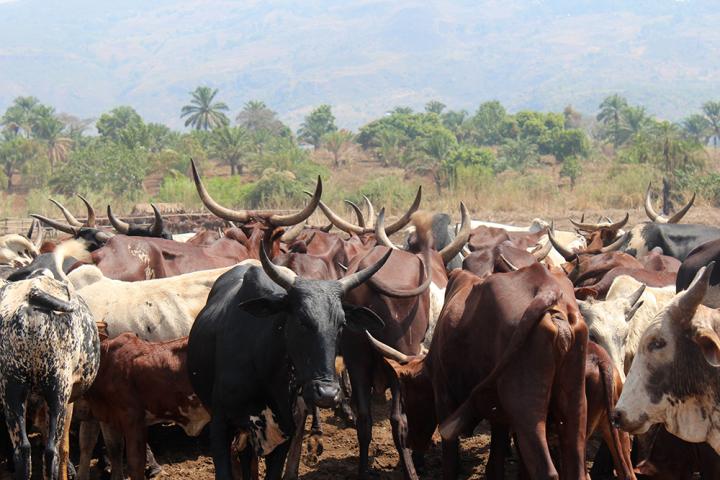TB insights may help breed healthier African cattle
Genetic discovery could help develop cattle with resistance to bovine tuberculosis.

Resistance to bovine tuberculosis (bTB) ̶ a disease that spreads from cattle to infect an estimated 70,000 people each year in Africa ̶ could be controlled genetically through selective breeding, a study suggests.
The research suggests that it is likely that a group of genes act together to confer resistance to this serious livestock and human disease. This finding will support future research, which could help farmers in Africa select and breed cattle that are more likely to be resistant to this disease in the future.
The study, led by scientists from the Centre of Tropical Livestock Genetics and Health (CTLGH) and the Roslin Institute, also suggests that, contrary to results of previous studies, resistance to bTB is not likely to be linked to a specific breed.
Genetics of resistance
Researchers studied and compared the DNA of 212 cattle in Cameroon. Lymph nodes from the necks of these animals were also sampled and 153 animals were found to be positive for Mycobacterium bovis, the bacteria that cause bTB.
Analysis of the material revealed that some of these animals’ genetic makeup conferred a higher level of resistance against bTB. Researchers also found that, although there were clusters of animals that differed in their resistance to bTB, there were no apparent differences between breeds.
Disease control option
The prevalence of bTB is rising in Cameroon and, with no effective vaccine or treatment, breeding for resistance for bTB may help to control the disease.
This approach has already been implemented in other countries including the UK, where the dairy industry recently introduced a genetic evaluation index that enables farmers and breeders to select Holstein dairy bulls with greater bTB resistance.
Genetic diversity
African cattle have a rich genetic diversity and have been bred over centuries to be suited to the environmental conditions in which they live. Researchers continue to study how African cattle could be bred to be more productive while retaining key traits that ensure their survival.
Our results suggest that resistance to bTB is not necessarily linked to a specific breed of cattle and that resistance to this disease is probably influenced by more than one gene. We hope with further research we will better understand the factors underlying bTB resistance to help to breed healthier cattle and subsequently improve the lives of smallholders in Africa.
This study highlights the need to understand the population genetics of cattle in Africa, because the apparent characteristic differences in breeds as described by farmers may not necessarily be reflected by clear genetic differences. This is critical for designing future breeding programmes informed by local knowledge to tackle challenging diseases like bovine tuberculosis.
The study is published in Frontiers in Genetics and has been funded by CTLGH.
**The Roslin Institute receives strategic investment funding from the Biotechnology and Biological Sciences Research Council and it is part of the University of Edinburgh’s Royal (Dick) School of Veterinary Studies. **
Related links
UK campaign recognises Centre’s impact on health
Gene map to aid studies of key traits in sheep
Photo Credit: Rob Kelly, University of Edinburgh


